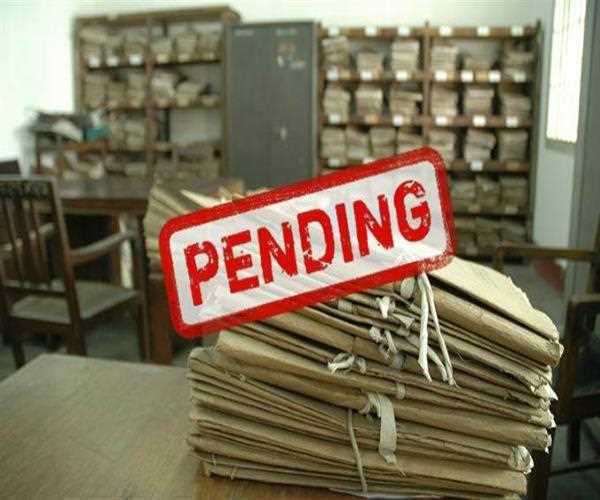
06-Aug-2020
Pending Cases Of Indian Justice System
When will the pending cases of justice in India wind up for good ? People have gone sick and tired of this date per date justice system which makes even the most determined and motivated one like broken into pieces.
The questions raised by Supreme Court Judge Justice R Bhanumati in his farewell speech have compelled all persons associated with the judiciary to introspect. In his farewell address, he said, 'I lost my father in an accident at the age of two.
In those days we submitted a claim in court for compensation. My mother submitted a claim, on which the court also passed the decree, but we could not get the compensation amount due to the passed procedure of the judicial system. Myself, my widowed mother and my two sisters were victims of lack of judicial process and delay in the judicial system.
She was the only one of the current judges of the Supreme Court who was posted in the Supreme Court from the subordinate judiciary. He also said that people express concern over the huge number of cases under consideration, but this huge number of cases can only be ended with positive efforts.
Everyone associated with the justice system suffers from the concern of Justice R Bhanumathi. At present, about three and a half crore cases are under consideration in various courts.
There are 58,700 cases pending in the Supreme Court, about 44 lakh in the High Courts and about three crore cases in the District Courts and Subordinate Courts. Of these, more than eighty percent of cases are pending in the district and subordinate courts. At the current pace, the mountain of these pending cases may take about 324 years to finish.
There are about 150 such cases, which have been under consideration for 60 years. 66,000 cases are from 30 years and 60,00,000 cases are for more than five years. Uttar Pradesh and Maharashtra lead in the cases under consideration. Lack of judges, lack of infrastructure in the courts, and interest in one party's delay in the cases are due to pending cases.
The lack of infrastructure has come to the fore during the Kovid-19. One reason for this is also the absence of the All India Judicial Service. It seems that the government is more or less ready for this, but the attitude of the judiciary is not as positive.
Shortly before, a preliminary project report of the Delhi High Court was presented, stating that there is a need to increase the number of sitting judges to settle the pending cases in the court in a year. A huge increase in the number of judges in subordinate courts and rapid improvement in infrastructure is needed today.
The government is the biggest litigator. She is a party to cases of perceived injustice in most lawsuits. It should be our priority to reduce the number of cases against the government. Several important suggestions have been made in the above project, one of which is the suggestion to fix the number and time limit of judges in the Zero Pendency Project.
READ HERE MORE : Samir Sharma Suicide Case Is Not Equal To Sushant Case
Lack of evidence, delay in evidence, delay in the processing of parties and lawyers, stay in remote places of parties, etc. are the reasons for pending cases, which will have to be resolved. The government is making efforts for the development of infrastructure, but its pace is slow.
Wi-Fi connections and computers have been provided to 13,672 courts. 14,000 laptops have been given to high courts and district judges. ICT facilities are in 16,845 courts and video conferencing has been arranged in 3,240 district courts and 1,280 jails. But even now basic facilities are not available in many courts.
This situation should change. The constitution provides for the appointment of retired judges. By following this, it can also help to cross the mountain of lawsuits. The need is that the government, judiciary, and lawyers' organizations sit together and make serious efforts to solve this problem.

Content Writer
I am a content writter !
Join Our Newsletter
Subscribe to our newsletter to receive emails about new views posts, releases and updates.
Copyright 2010 - 2026 MindStick Software Pvt. Ltd. All Rights Reserved Privacy Policy | Terms & Conditions | Cookie Policy